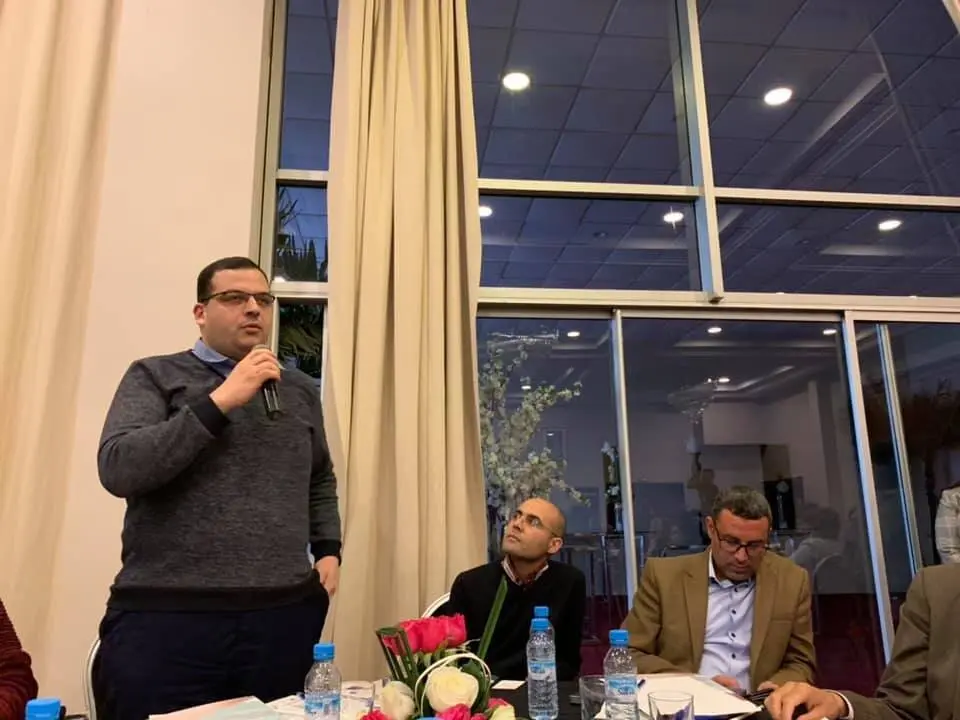Mentoring has a psychological aspect and I’ve found it valuable for myself and my mentee during Covid times. There’s power in sharing without judgement. Having someone who can simp0ley listen is invaluable. While mentoring doesn’t substitute psychology, it does a safe space for you to face your fears with the right support.
— Mohammed Husain. Mowgli Mentor Palestine. THE NEXT SOCIETY initiative.
When Mohammed joined THE NEXT SOCIETY community, his key need was to network with other clusters within, and beyond Palestine. As a Cluster Manager, Mohammed’s role includes managing relationships with stakeholders’, key ones being – financial providers, over 50 SMEs, research and development partners, and various unions that work within his cluster. Joining THE NEXT SOCIETY initiative was therefore an opportunity for him to benefit from the various forms of support offered by the initiative, mentoring included.
When I joined this Mowgli Mentoring programme, I was somewhat reluctant as I did not fully understand mentoring. As someone who directly works with SMEs, I wondered why not just provide advisory which is more solution-based. However, the mentoring exercised made me realize and experience the broad nature mentoring, viewing a person as a whole. SMEs are run by individuals, the human aspect of support is something that’s not given as much attention, and for me, this has completely changed how I view SME support.
Training and sharing best practices with cluster managers such as Mohammed has proven to be effective in increasing the understanding of mentoring within the MENA ecosystem.
The mentor training was a truly enlightening experience. I got to fully understand what mentoring is, and how it’s different from, yet compliments interventions such as advisory and coaching, which are very common with the SME support world. I found the Mowgli Mentoring approach quite clear, and mutually beneficial for both mentor and mentee. We explored skills such as empathy, understanding and active listening with emphasis on not being judgmental or jumping to conclusion. These learnings have been beneficial in helping me reflect on my personal problem-solving style. Through this programme, I have also learnt to separate my personal feelings from the support process and now use the bottom-up approach to guide the people I mentor, empowering them to find their own solutions. This is the beauty of mentoring; it builds your capability to find your own solutions.
Mohammed has seen a clear shift in mentoring, and shares that despite the tough economic climate, mentoring has helped his mentee to build his resilience.
We’re still connected. Had this been consulting, this relationship would’ve already ended. I appreciate the long-term nature of mentoring.
The idea behind clusters is to encourage companies within specific sectors and regions to collaborate.
Sharing is key to the success of clusters, and we have found great value in mentoring because it opens the door for mutual learning and sharing, to try and fail. It’s more experience focused.
On a personal level, mentoring has also changed how Mohammed view’s problems.
I now seek the different perspectives that I encourage my mentee to seek. Mentoring has been a powerful self-analysis and reflection tool.
As a leader within the entrepreneurship ecosystem in Palestine, Mohammed sees real value in adopting mentoring across the various sectors he works in.
Sharing information across the ecosystem is a great way to grow clusters. A programme like this enables successful leaders to support new business owners, and raise the economic environment which will benefit everyone. I’d like to see mentoring applied within organizations such as the chamber of commerce, and universities to as a strategy to connect members. There’s lots of possibilities with mentoring.

